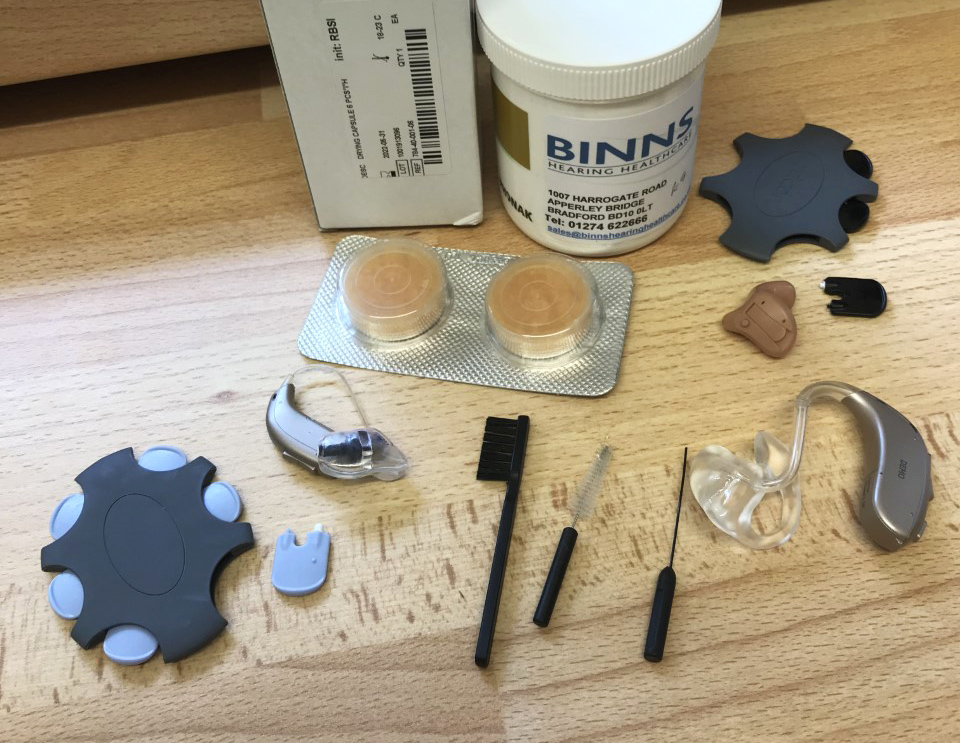How to clean your hearing aid
-
- Wear gloves when cleaning hearing aids
- If you have behind-the-ear hearing aids, clean the hearing aid surface with wet wipes that don’t contain alcohol. This is because they are coated with a hydrophobic coating that is sensitive to alcohol
- For in-the-ear hearing aids, all kinds of wet wipes can be used for cleaning the hearing aids’ surface. The cleaning guidelines are also applicable for EduMic and ConnectClip
- An alternative to wet wipes is cleaning with a mild soap solution on a hard-twisted cotton cloth. Avoid using excess water that can enter the hearing aids
- After cleaning, discard the gloves and wash your hands carefully with soap and water or disinfect with a suitable alcohol disinfectant
- Leave your cleaned hearing aids to dry for one hour
Advice before cleaning
As a general rule, clean your hearing aids and earpieces each day with a soft, dry cloth. Make sure your hands are clean and dry before handling your aids.
The microphone inlets can easily get blocked. If you are having problems with your hearing aids, check that the microphone inlets are not blocked.
Before handling a hearing aid, make sure you hold it over a soft surface to avoid damage if you drop it
Taking temperature in your ear
If you or someone else need to take the temperature in your ear, we recommend that you remove your hearing aid first. Having the hearing aid in the ear while taking the temperature in the ear may result in not showing the correct temperature.
Spend a few minutes each day cleaning your hearing aids
Your ear canal produces earwax, which serves the important purpose of protecting and lubricating your ear. But wax buildup is one of the main causes for hearing aid repair, because wax clogs up the sound outlet and/or the ventilation opening, resulting in weak, distorted sound or absence of sound.
Your hearing aids are an important investment and have been designed to be both reliable and durable. Use a few minutes each day to clean them. Most hearing aids come with a filter or other device to stop wax getting into the hearing aid. Check the wax filter and replace it if necessary.

Don't leave your hearing aids lying around the house
It might sound silly, but pets can often take a fancy to your hearing aids, particularly if you have a dog that likes to chew on TV remote controls, shoes left hanging around your hours and other household gadgets.
Dogs have been known to chew on aids and even swallow them, and cats can use them as toys. Hearing aids are easy to swallow and batteries are dangerous, so it’s vital for you to know the hazards hearing aids and batteries can make it left carelessly.

